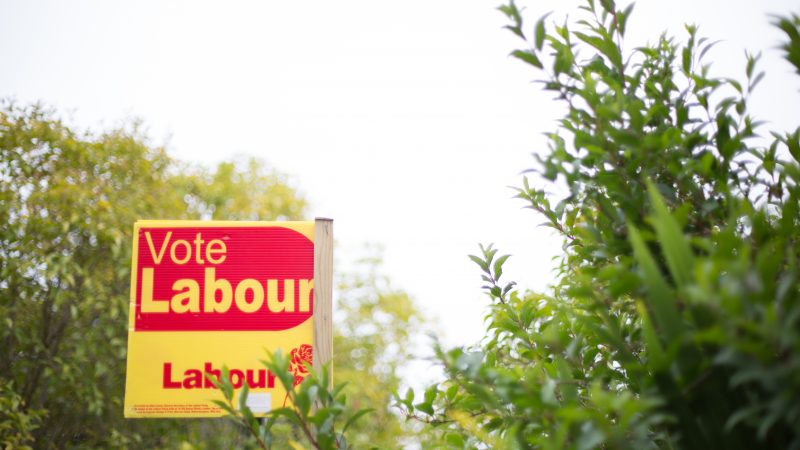
“It would be me being dishonest if I said we expected to lose,” Harrow councillor David Perry tells me. We are discussing the local election results, which saw Labour lose control of the council to the Conservatives. “We didn’t expect to lose. We always knew it was going to be a tough, tough fight out there. But we thought, what with our local record, and how hard we’d worked – we’ve got some good people – and the national situation, all of those reasons into one, we thought we had a good chance.”
Fellow councillor Antonio Weiss, who represents Marlborough ward, said he had been “fearing” the result. “It was very, very disappointing,” he tells me over the phone while waiting for a train up to Wakefield for a day of canvassing. “It was more disappointing I think than I thought, but it was definitely in the range of potential outcomes that I thought might happen.”
Labour won 24 seats on the council, compared to the Tories on 31, allowing the Tories to take overall control for the first time since 2006. Redrawn boundaries resulted in the number of councillors being reduced from 63 to 55, making comparison with the last set of elections in 2018 more difficult. But Labour’s vote share is revealing of the party’s changing fortunes in the borough – falling from 47% four years ago to 40% in 2022.
Perry is now Labour group leader after his predecessor Graham Henson stepped down from the role following the election. He tells me during our phone call that there was a “myriad of issues” involved in the result including the boundary changes, which the party “always knew was going to be tough”. New councillor Eden Kulig, elected to represent Harrow-on-the-Hill ward, also raised the issue of boundary changes, adding: “There’s a question over whether Labour directed its campaigning towards wards where it would have been most effective.”
Both Perry and Kulig note how tight the results were, in keeping with Harrow’s reputation as a Conservative/Labour marginal. Perry describes the borough as “split two ways”, with Labour MP Gareth Thomas in Harrow West constituency and Tory MP Bob Blackman in Harrow East. “The council results ultimately came down to 150 votes between Labour and the Tories across the whole borough,” Kulig tells me. “So clearly it was possible things could have gone either way.”
Demographic changes are also raised. “The demographics of Harrow are increasingly leaning Conservative,” Kulig says. “Particularly amongst some British Indian communities, who are increasingly voting Conservative for a variety of reasons.” Perry explains that this has been especially true in the east of the borough, telling me: “There’s been a lot of work done nationally by the Conservatives in certain communities, and you could see that play out with some of the candidates which were elected in Harrow East, for example.”
For Weiss, however, council tax was key. “More than anything, if there was a single issue, that kind of stuck out by a big amount,” he tells me, adding that it was a “very hard message to win on”. Perry says council tax was one of the main issues raised by voters on the doorstep and added that the local Conservatives were “very articulate” at highlighting the increases overseen by the Labour administration (increases the Tories have done nothing to reverse since taking office, Weiss and Kulig note).
Kulig also raises the police investigation into allegations Harrow Council staff took £2m of taxpayer money as part of a scam that saw contractors only pave one side of a road. She tells me: “The Conservatives’ decision to leak an ongoing police investigation during the campaign in order to falsely accuse the previous Labour leader of corruption had an effect, and I think it’s sad they had to stoop to falsely smearing the council leader rather than campaigning on what they plan to deliver.”
Another key factor highlighted by the councillors I speak to is Labour’s messaging during the campaign. Kulig thinks Labour could have “told a better story” about what the party has achieved in Harrow since the last election and what it was planning to achieve under the next administration. Weiss similarly says the party could have drawn more focus to the “good things” it was doing in Harrow, including overseeing a rapid recovery of the borough’s high streets and one of London’s fastest Covid vaccine roll-outs. “Comms is an easy thing to say and a very hard thing to do well,” he says.
“Moving forward, I think we would probably be a lot more targeted with regards to messaging on the ground in our wards, and not necessarily just pushing the bigger ideas, but those local issues,” Perry admits. He says the party has “lessons to learn to be a little bit more aggressive, online and offline”, for example on the Conservative Party’s national record. “Hindsight’s a wonderful thing, but this is that process we’re going through now… to understand what’s gone wrong,” he adds.
Perry tells me that his priority as group leader is to build up the campaigning force in Harrow, “reinvigorate” the branch network and work with the borough’s Constituency Labour Parties to start preparations for future elections. “We’ve got a general election in a year or two. And so that’s my focus.” He has past experience as Labour group leader and leader of the council and so wants to hit the ground running: “The bar is high, set by myself and group, in order for us to electorally in Harrow start bouncing back.”


More from LabourList
Suspended, expelled, quit: Who are the MPs sitting without the Labour whip?
Adur local elections: How a red wave can end 25-year Tory grip on south coast
Labour Party election manifesto 2024: Key current policies at a glance